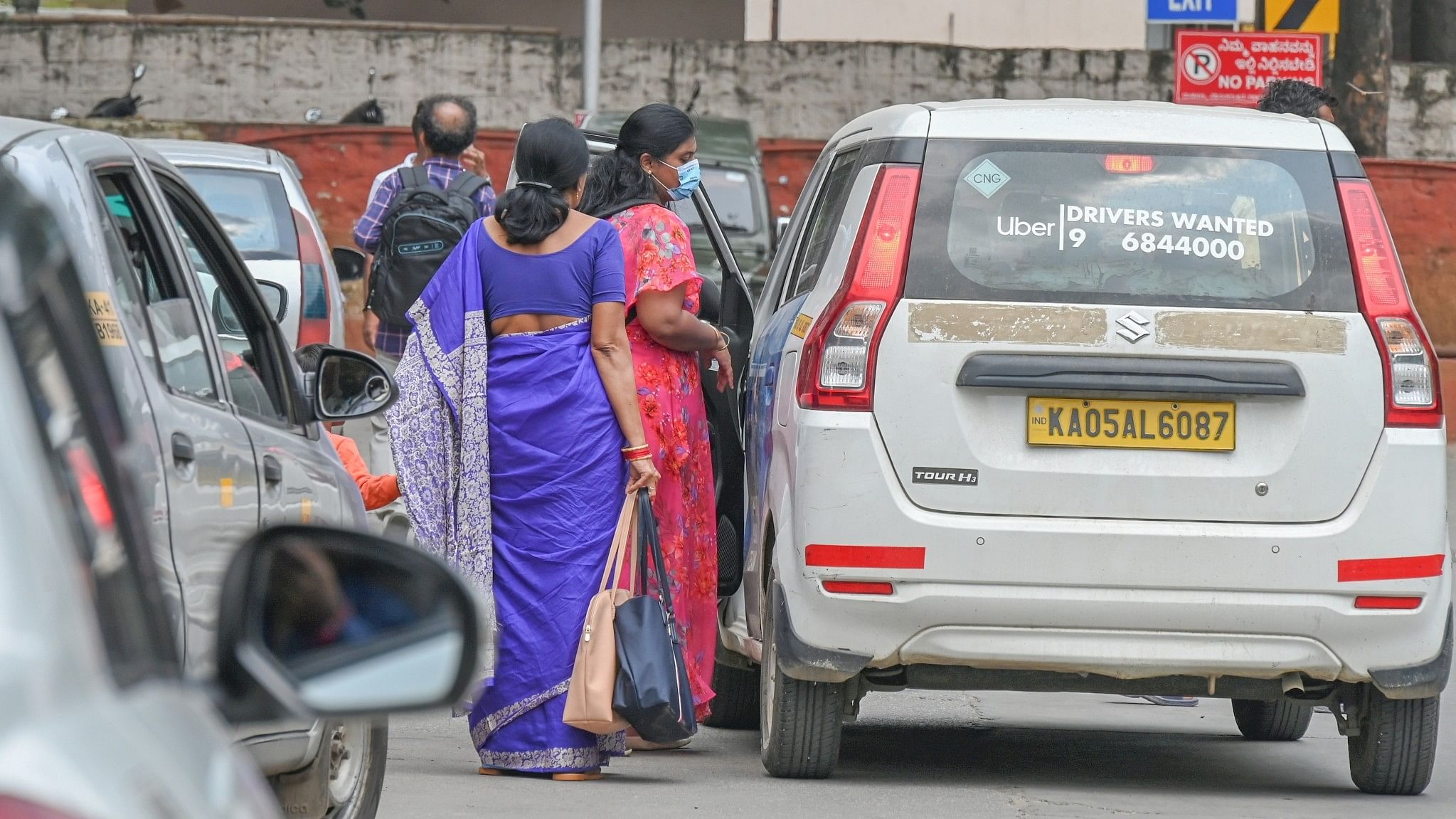
Rideshare and pooled cars can sometimes create traffic hurdles, especially when travellers get in and out of cars on the road and not towards the footpath.
Credit: DH Photo/ S K Dinesh
Bengaluru has seen many experiments in carpooling, bike-pooling and ridesharing since 2013. Applications with carpooling services have security features, such as tracking the ride through the global positioning system (GPS) and SOS buttons. Some even measure points for the riders and carpool givers (owners of the pooled car), estimating the fuel and carbon emission saved and the distance covered.
Many using Quick Ride, a carpooling service targeting techparks and software professionals, have unequivocally opposed the new proposal to ban carpooling. While they are relieved that the government has continued the “status quo” for now, they feel carpooling should be allowed to continue.
Manooj M S, a software firm employee, feels carpooling has numerous benefits. “It is cost-effective, helps to socialise and cuts down on carbon emission,” he says.
Manoj explains that using his car for pooling has helped him save money on travel from his home in Hebbal to Sarjapur, a 60 km to-and-fro journey.
Manoj registered on Quick Ride through a help desk in his office. He says users are asked to register through their official corporate email address and are verified.
Harish Kumar (name changed), another software employee, is all praise for carpooling. “It helps navigate long, often boring, routine journeys with good company. That it partly covered my petrol expenses was only an extra benefit,” he says.
“I used it over 400 times as a driver. I got pleasant passengers, and meeting like-minded people was fun,” Kumar adds.
Easy on pockets for all
On Quick Ride, drivers usually earn Rs 3-7/km per person, depending on their vehicle mileage— cheaper than an auto, which costs a minimum of Rs 15/km. The money the users pay is converted to points, and the app deducts an average of 8-10 per cent as the platform fee. The rest goes to the driver towards fuel charge reimbursement.
The deal does not profit the driver but benefits the rider. Commuters find it more convenient, especially as autos almost always charge more than metered rates, while taxi services also charge a premium.
Sikander Mohammed, a senior corporate professional, says his experiences over six years have been pleasant. “When we keep meeting like-minded people over a long period of time, we develop good bonds, as I did with many people,” he says.
Nisha Agarwal and Megha, who have been using Quick Ride services as passengers, say it is economical and helps socialising and helping each other. While Nisha started using it after learning about the services through the radio in 2017, feedback from Megha’s sister led her to use it in 2022, which she continues to date.
“During carpool rides, I met a cancer specialist and many other professionals. This mutually benefits everyone as we may need each other’s help at some point,” says Shivayogi, another carpooler.
Dhanush N, a Malleshwaram resident who uses the intercity carpooling service BlaBlaCar, bats in its favour. “BlaBlaCar was a great service for me to go to Delhi for work from Rajasthan’s Alwar. It was a bit costlier than the train journey but took half the time and was more comfortable,” he says.
He speaks of an experience where he had to transport a few personal computers from Bengaluru to Coimbatore, where the BlaBlaCar service cost him just 30 per cent of what he would otherwise pay.